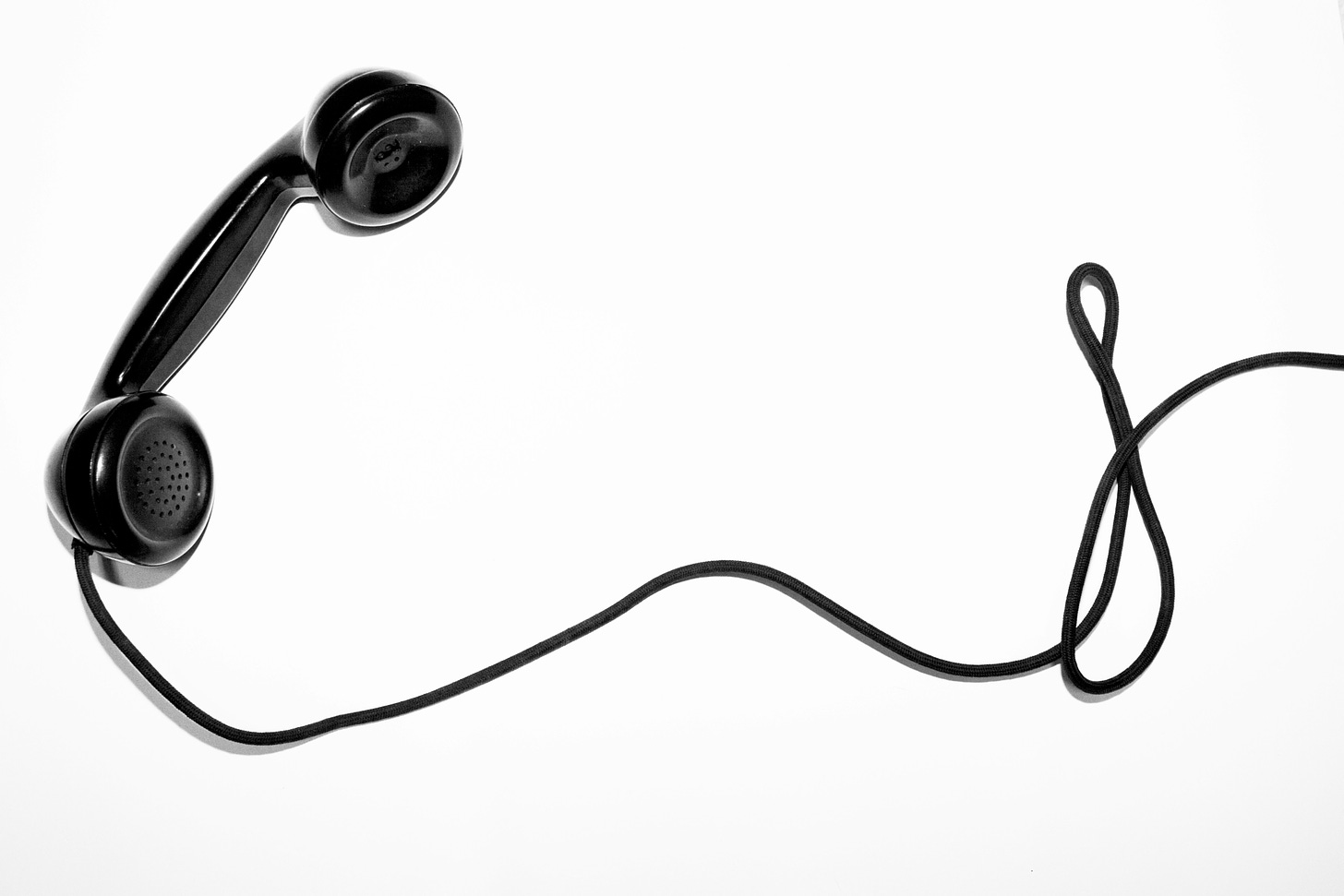You can listen to an audio version of this newsletter above. Please note that this is unedited and there may be some natural stumbles, as I’m recording in my home office.
Quick Co-Working Note
February and March co-working sessions will take place on the following days and times and paid subscribers can access the Zoom links here.
(Pop-Up Session) Thursday February 1, 2024 12-3pm EST
Friday (not Thursday, as I accidentally listed before) February 9, 2024: 12pm-3pm EST
Friday March 8, 2024: 12pm-3pm EST
Welcome to the first Q&A post of the year—now free to all readers!
Thanks to folks who submitted questions here and on Instagram. If I didn’t answer your question today, I’ll try to answer it in the future. I invite you to submit a question for the monthly Q&A about anything from productivity to chronic illness to alt-ac paths to writing to slow fashion to hobbies to etcetera.
Question 1: How do you ease back into working towards your goals and get back into routine after a busy/chaotic period where everything goes off track?
When we take a break from working on our goals or we shift our routines, it could be planned or unplanned. The first is easier, because we can prepare, but the second one is more complicated. I’ll talk about both here.
When we know ahead of time we’ll need a break from a goal or routine, like when we’re having a medical procedure and will need time to recover, or when we’re scheduling a vacation, we have the benefit of prioritizing, closing down our projects, and leaving instructions for when we return.
If you can identify when you’ll shift away from your routine or goals, you can reverse engineer a plan to complete any outstanding tasks before you leave. For example, if you owe someone a time-sensitive response, send it before you leave or let them know you’ll respond when you return, then set up your out-of-office email response so you won’t need to worry about email while you’re away. If you’re working on an ongoing project, write yourself a reminder of where you stopped and some guidance for when you pick up your goal again. When I was writing my dissertation, I would write myself a note at the end of every work session about what I did and where I should start at the next session.
While the instructions above work well for a planned break, it’s also likely you’ll encounter roadblocks due to an unplanned disruption, like an emergency, flare-up of a chronic illness, or a more positive yet unexpected opportunity that pulls you away from your previously-scheduled routine or goals. While you might be unable to prepare ahead of time for these challenges, I do have some tips to help you reacclimatize after the dust settles.
My go-to when returning from a whirlwind is always to establish where I’m at with a brain dump. This is where you can get everything out of your head and down onto a page so you won’t need to rely on your memory to hold everything. Seeing a long list of things you need to do might feel activating or overwhelming (“How the hell will I ever do all of these things! Where do I start?”), so it could help to schedule a set amount of time to write it, or write it and then leave the room to do a self-care practice, like light stretching in another part of your home or brewing a cup of herbal tea.
Step one is writing the list of tasks—not completing it. Step two is evaluating the list to determine what you need to do and when you need to do it—but again, not yet completing the tasks.
Here’s where I’ll suggest one of my favorite productivity tools: the Must-Do Method, which I learned from the author Sarah Knight. Instead of starting at the top of your brain dump and treating it like a to-do list, review your brain dump of tasks and identify which ones TRULY must be done first. Not because you morally feel like you should do them immediately, but because they’ll support your functional needs for financial security, mental health, a safe living space, etc. In other words, “call my bank about the mysterious charge on my credit card” should be prioritized over “try out that new gluten-free bread recipe,” and if your library books aren’t due until next week and you’re currently out of groceries, then taking a trip to the store should happen first.
Try to be compassionate about the fact that you won’t be able to do everything right away. I love this episode of Hadassah Damien and Laura Boo MacDonald’s Bottom Lines Top Dollars Podcast, “Coming Back from Some Bullshit,” where “the ladies who crunch” talk about how to return to important tasks you ghosted.
If any of your tasks feel particularly aversive, consider enlisting a friend to do some body-doubling with you. If any of the tasks feel complicated or confusing, take some time to break them down into actionable, smaller tasks.
My final thought here is that returning to your routine after being away from it a bit also offers you the opportunity to evaluate whether your previous routine truly was working for you. If you have the ability to shape your schedule, could you add in time blocks to focus on tasks you’re catching up on or blank space to take breaks?
Question 2: How do you live slower as a busy entrepreneur?
If you skimmed many of the best-selling productivity books, I bet that the suggestion you’d find is to delegate tasks to other people to free up space and time in your schedule. In order to do this in an ethical way where you are paying folks a thriving wage, you first have to be bringing in enough income, which is a challenge when you’re dedicating a lot of time and likely money to establishing your business.
Let’s assume, however, that the reason you’re so busy is because your business is doing well, and even with the support of an assistant or employees who you’re paying well for their labor, you’re still feeling overwhelmed and crunched for time and energy.
If I were coaching someone who was navigating this obstacle, I might ask a few questions:
What does your schedule look like? Do you take breaks? Do you have time outside of work for movement, hobbies, spending time with loved ones?
Have you established boundaries around your availability with your clients or customers?
How do you feel about slowing down, scheduling in breaks or vacation, or setting non-negotiable rules around how much you work? If those questions make you feel uncomfortable, what part feels scary or daunting?
What models of entrepreneurship inspire you? What is similar or different about your lived experience, identity, or finances compared to those people or groups you hope to emulate?
Is there a small action you would feel comfortable doing now to help protect your time and energy, so you can slow down a bit and have more time for rest and self-care?
These questions are important because they acknowledge that it can feel uncomfortable to do less, which may feel like we’re rejecting upward mobility and traditional forms of success for our businesses. Making a small change can have a big effect, but often the overwhelm we encounter is ongoing and requires bigger shifts that take time to establish.
After all, we’re starting and running businesses during late-stage capitalism. Tenets of white supremacy and patriarchy—scarcity, perfectionism, competition, etc.—are masked by hustling, something entrepreneurs are very familiar with. Anyone who has started a business in the age of social media has been inundated with messages about making six figures, working just a handful of hours a week, and other shiny promises that we know in our heart of hearts are inaccessible without falling into a pit of workaholism.
To live slower as an entrepreneur, a good starting place is checking in on the way you think about your output. A next step could be brainstorming non-negotiables that would protect your energy and time, and then trying one out. After a little time, reflect on what is working and what isn’t working, then shift accordingly.
As my therapist always reminds me, I’m in year 3 of my business, so I shouldn’t have expectations that I already have figured it out like I’m in year 10. It’s okay to take these shifts slow and steady.
Today’s questions are precisely the types of questions I support folks with in Productivity Coaching.
If you’re feeling stuck or overwhelmed about an aspect of your productivity practice, I invite you to book a 60-minute Productivity & Strategy Call with me.
I’ll be back next week with my quarterly bonus post for paid subscribers and will return to everyone’s mailboxes on the first Wednesday of February. If you have any questions, feel free to write me at kate@katehenry.com or reply to this email.
Take care and talk soon,
Dr. Kate












I appreciate your reflections on slow entrepreneurship! I've noticed the pattern in the advice you describe that tells entrepreneurs to offload tasks to VAs that they pay poorly. I love that you acknowledge that not everyone a) can pay for assistance or b) is willing to participate in paying assistants poorly.
I really appreciate your insights, Kate--in this post and always. The idea of a three-part brain dump process is intriguing, as are your reflection questions about a gentler pace of entrepreneurship. <3